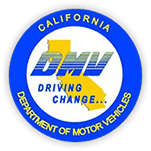Ten Defenses to Help Win a DMV Hearing
In California, there are two ways to lose your driving privileges following a DUI arrest. The first is to be convicted of a DUI charge in court. The second can happen whether or not you are convicted of the DUI or before you have even had your day in court. This is through a DMV administrative suspension.
An administrative suspension by the California DMV goes into effect 30 days after your DUI arrest. Fortunately, you and your DUI defense attorney can fight the suspension if you request a DMV hearing within ten days of the arrest.
Winning a DMV hearing can be challenging for a few reasons. Firstly, the DMV hearing officer acts as both the prosecutor and judge. It is their priority to make sure your license gets suspended. They also do not adhere to the strict rules of evidence required in a real court. So, to win your DMV hearing, your attorney must present clear, strong arguments in your defense with as much supporting evidence as possible.
Possible Defenses to Win a DMV Hearing
Your reputable DUI defense attorney could carefully review the police report and all evidence in the case to determine which defenses could be most effective in fighting your administrative suspension. Ten of the strongest defense arguments in a DMV hearing include:
- The officer did not have probable cause to stop you. Officers cannot pull a car over without reason. If you were obeying all traffic laws prior to being pulled over, there is a strong case the officer did not have probable cause to stop you.
- Your BAC level falsely registered as over the legal limit. Several factors can result in a false reading, including “rising BAC,” taking certain medications, eating a low carb diet, and having certain health conditions such as acid reflux or GERD.
- The BAC test equipment was not working properly. Breath test equipment must be maintained and calibrated on a regular basis. If the device’s calibration records show there was a malfunction or it was not calibrated as required, the results might be invalid.
- The DUI checkpoint where you were arrested did not follow proper legal procedures. Performing a DUI checkpoint is legal, but the participating officers must follow strict legal guidelines and procedures when doing so. Necessary procedures include screening cars on a random basis, alerting the public to the checkpoint in advance, and having supervisors present to monitor the process.
- You did not drive the vehicle. To be convicted of a DUI in California, there must be evidence of “volitional movement.” If you did not actually drive your car, you are not guilty of DUI. Simply sitting or sleeping in your car is not illegal in California.
- The arresting officer did not properly conduct the required observation period. Before an officer can administer a breathalyzer test, they must observe you for 15 minutes. This is to ensure you do not eat, drink, or vomit prior to the test. If you were not properly observed, the results might be invalid.
- The officer was not properly trained or qualified to administer field sobriety or breath tests. If the officer did not receive proper training in the administration of field sobriety or alcohol breath tests, the results might be invalid.
- The officer did not obtain two breath samples. When an officer administers a breath test, they are required to obtain two samples that do not differ more than .02 grams/1 Liter of blood alcohol. If two samples were not obtained, the result might not be valid.
- The officer did not explain the consequences of refusing the BAC test. When an officer asks you to take a chemical test, they must first clearly advise you of the consequences associated with refusing it. If they did not inform you of the consequences, your refusal might not count against you.
- There were errors or omissions in the police report. Officers often cut and paste incorrect information onto a police report. They may also fail to fill out the area labeled DS367. This area is used to explain why the officer had probable cause to stop you. If it is left blank or information is cut and pasted but lacks the officer’s initials, the DMV will likely not be able to meet their burden of proof to show probable cause. Additionally, if there are other errors or discrepancies in the report, your attorney might be able to prevent a license suspension.
If you or someone you know has been arrested for drunk driving, we strongly recommend contacting our skilled DUI defense attorneys at the Law Offices of Scott Henry for a free consultation. We take the time to meticulously review the police report and evidence in the case and build an effective defense strategy to utilize at your DMV hearing to prevent the suspension of your driving privileges.











